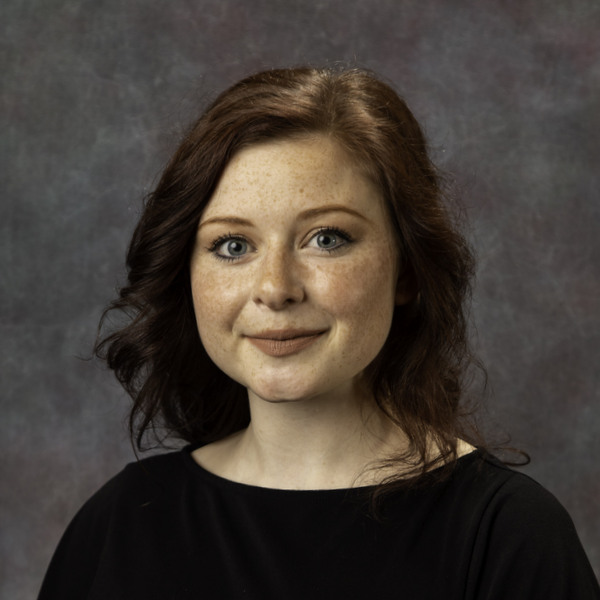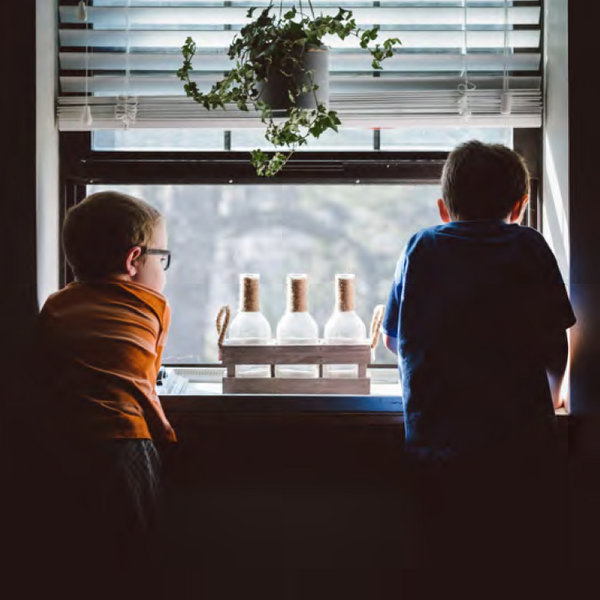By Kathleen Ramsey, Clinical Psychology Extern, FGH Employee Assistance Program
Kids won’t be returning to school until the fall, which means that both parents and their children are facing unanticipated changes. In turn, they’re likely experiencing a variety of mixed emotions as they navigate this unknown territory. In the midst of all of this chaos, how can families learn to adapt?
Modify your workspace… This goes for parents and children!
- Designate a workspace that, if possible, is only used for work. If you do not have an at-home office space or desk, consider using your kitchen counter, dining table, outside furniture, or another area. Avoid working in bed, as this may interfere with sleep.
- Remove potential distractors such as electronics (e.g., cell phones, television, etc.), pets, and toys. Determine whether background noise is helpful or distracting; what works for one person may not work for another. Consider listening to ambient noise or music without words.
- Try to break work into chunks. As a general rule of thumb, give yourself a 5 minute break for every 25-30 minutes of work, a 10-15 minute break for every hour of work, and so on. The trick is to not let those small breaks become excessively long breaks; this kid-friendly online timer using the Pomodoro technique is a great solution.
Stick to a daily routine.
- Make a physical or electronic calendar to map out your family’s schedule throughout each week. Pictures may help kids envision what to expect. Some websites have free, printable calendars.
- Include a variety of things to do, such as work, physical activities, socialization with family or outside family members and friends (via FaceTime, Zoom, etc.), chores, and creative activities (e.g., playing an instrument, making art, or reading) in your schedule.
- Build in rewards throughout your day (e.g., screen time, playing a board game, listening to a podcast) for completing tasks that are uninteresting or require extensive time and mental effort.
Make learning fun.
- Go on a virtual field trip with your kids. Visit the San Diego Zoo, Walter Anderson Museum of Art, Smithsonian National Museum of Natural History, Georgia Aquarium, Kenai Fjords in Alaska, Metropolitan Museum of Art, and more!
- Practice active learning by recreating your adventure by writing a story, putting on a show, drawing, or using LEGOs, playdough, or sidewalk chalk.
Set and enforce limits.
- Create a list of household rules if you haven’t already. Kids should know what behaviors are associated with consequences. Posting them somewhere, like the fridge, may serve as a visual cue to remind children what is expected of them.
- Use effective commands; for a command to be effective, it must be direct (e.g., “Put the toys in the box,” instead of “Are you ready to clean up?”) and positively stated (e.g., “Please walk when you’re inside,” instead of “No running inside!”). Be sure to get your child’s attention before giving a command, and try to only give only one command at a time.
- Reward positive behavior. Be on the lookout for behaviors you like to see, and reward them; catch your child being good! If your child complies with a command, immediately reinforce this behavior with praise (“Good job cleaning up! I love when you listen and follow directions.”).
- Ignore minor misbehaviors. Children love attention – even negative attention! Save consequences for violations of household rules and behaviors that could result in harm to a person or household damage. As soon as your child begins to do something you like (e.g., playing quietly), praise them.
- Consistently and immediately follow up with consequences. Delayed consequences are not effective because they are not directly connected with the child’s behavior. For young children, a time-out procedure may be effective; for older children and adolescents, removal of privileges (e.g., video games) may be appropriate.
Be flexible.
- It’s okay to not be perfect. We can provide all the structure in the world and still struggle with getting things done, managing kids’ behavior, and balancing work and self-care.
- Adjust your expectations for yourself and for your children. Our main priority is to keep ourselves and our families safe; anything above and beyond that is a bonus.
- Understand that it’s normal to have negative feelings. Both parents and children may feel worried about the future, disappointed about events being canceled, or frustrated with the current state of affairs. Validate these feelings without judgement.
Know your resources.
- Free webinars: Parenting and Self-Care in an Age of Uncertainty by Regine Galanti, Ph.D.; Family Mental Health for Parents During the Corona Pandemic by Joshua Rosenthal, Psy.D.
- Free self-help guides: Coping with Fear and Sadness During a Pandemic by William Sanderson, Ph.D.; FACE COVID: How to Respond Effectively to the Corona Crisis by Russ Harris, Ph.D.
- Facebook Live video chats with expert clinicians and daily advice tips through the Child Mind Institute.
- Free resource manual for teachers, administrators, parents, and students.
- List of online games, including board games, trivia, card games, puzzles, word games, and more.
- Headspace app: Free collection called “Weathering the Storm,” including meditation and mindfulness practices, information on sleep hygiene, breathing exercises, guided imagery, and more.
- Crisis Text Line: Text HOME to 741741 to connect with a crisis counselor.
- Pine Grove Behavioral Health and Addiction Services’ free community support line related to COVID-19 Stress and Anxiety. This emotional support line is intended for adults ages 18 years old and older, and the number to call is 1-888-574-HOPE (4673). The line is open and accepts calls daily from 8:00 AM to midnight, 12:00 AM.
Pine Grove’s world renowned programs treat gender specific chemical addiction including a specialized track for co-occurring eating disorders. Additionally, Pine Grove offers an Intensive Outpatient substance abuse healing program for adults and a program specifically for those who are age 55 plus. Other Pine Grove specialty programs include a dedicated professional’s treatment curriculum and a comprehensive evaluation center. Pine Grove also features a program for patients with sexual addiction. Inpatient Services including an Adult Psychiatric Unit, along with a Child and Adolescent Psychiatric Unit, and Outpatient Services are other components. Pine Grove was established in 1984 and has provided nationally and internationally recognized health care for 36 years.

Kathleen (“Katie”) Ramsey, M.A. currently works as a graduate clinician at the University of Southern Mississippi Psychology Clinic, where she provides both individual and group therapy and assessment services to children, adolescents, and adults. She also holds a clinical externship placement at Pine Grove’s Employee Assistance Program (EAP). Ramsey is a third year clinical psychology doctoral student at the University of Southern Mississippi, where she studies under the mentorship of Stephanie Smith, Ph.D. She is a member of the Childhood Neurodevelopmental Disorders Lab, which conducts research examining risk/resilience factors of externalizing behaviors in children and adolescents and how to augment intervention and prevention efforts for these youths. In her lab, she is primarily interested in applying state-of-the-art electroencephalography (EEG) methods to clinical research.

